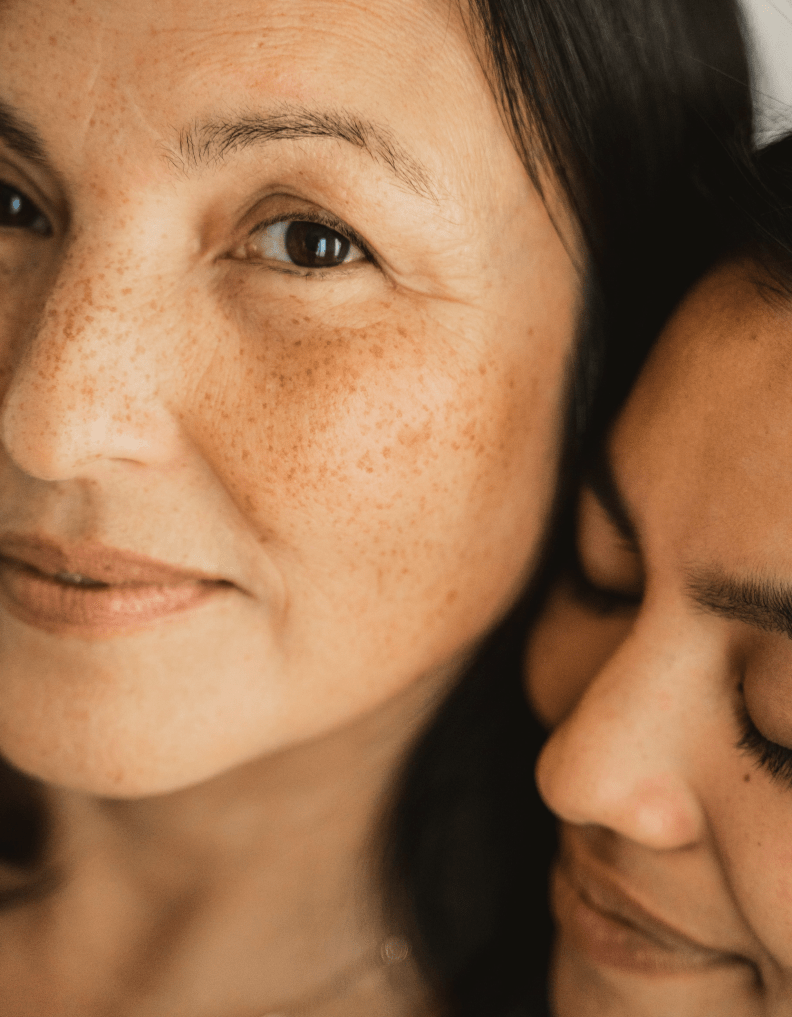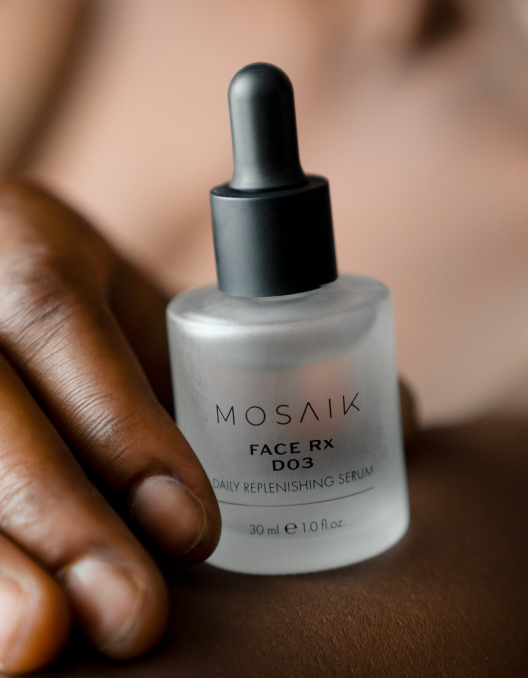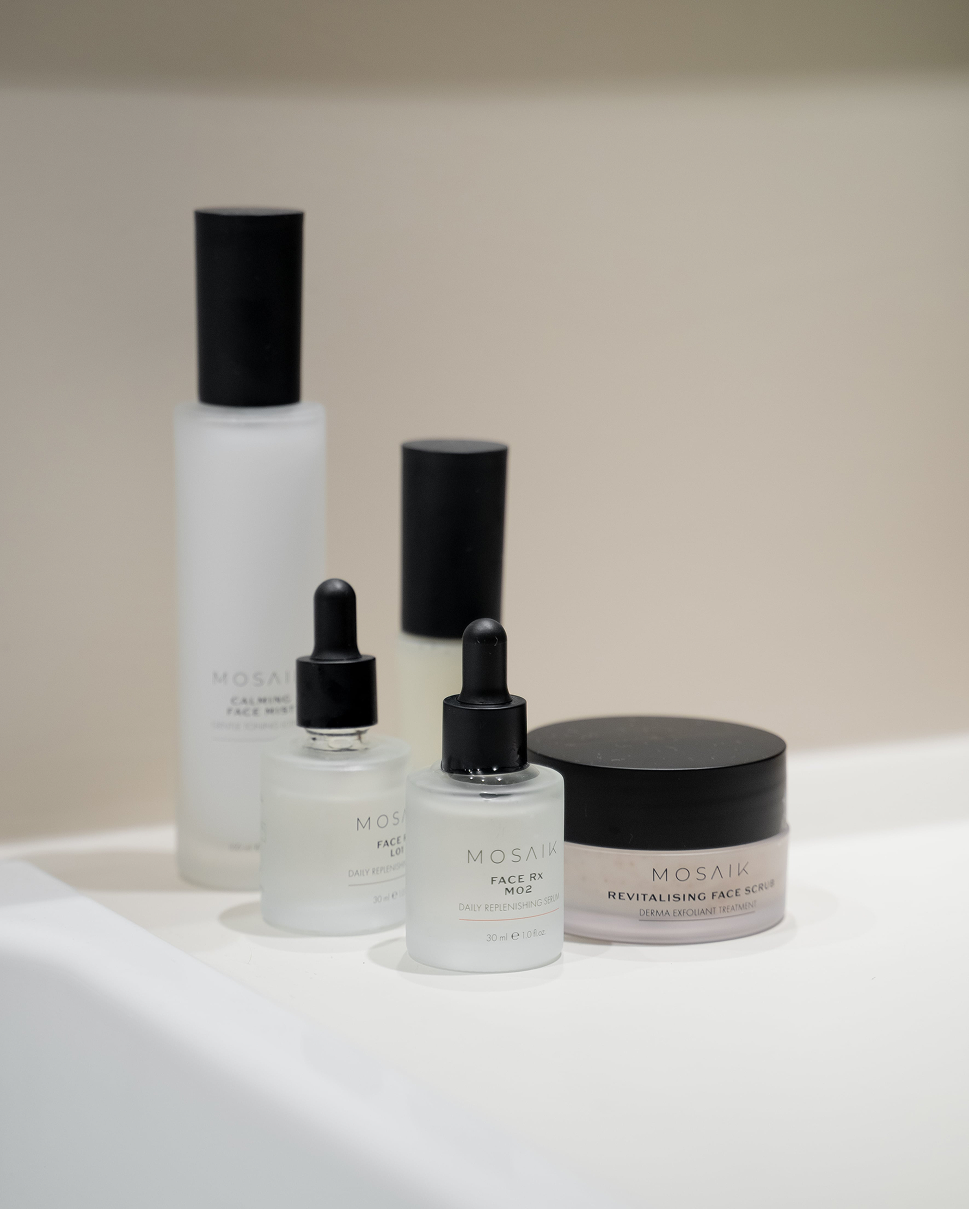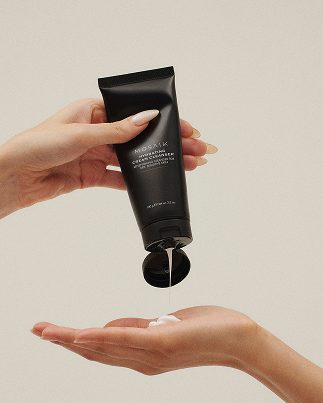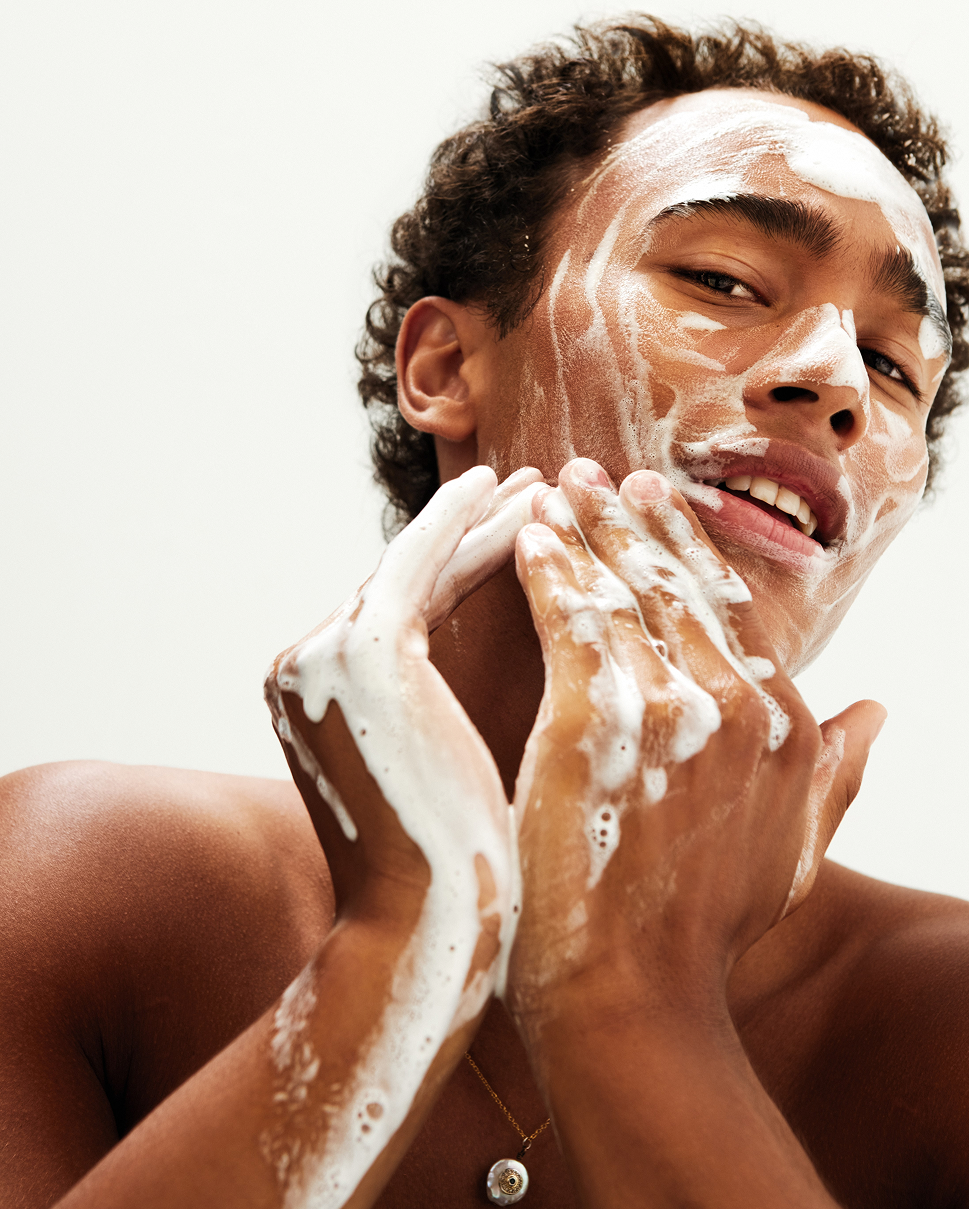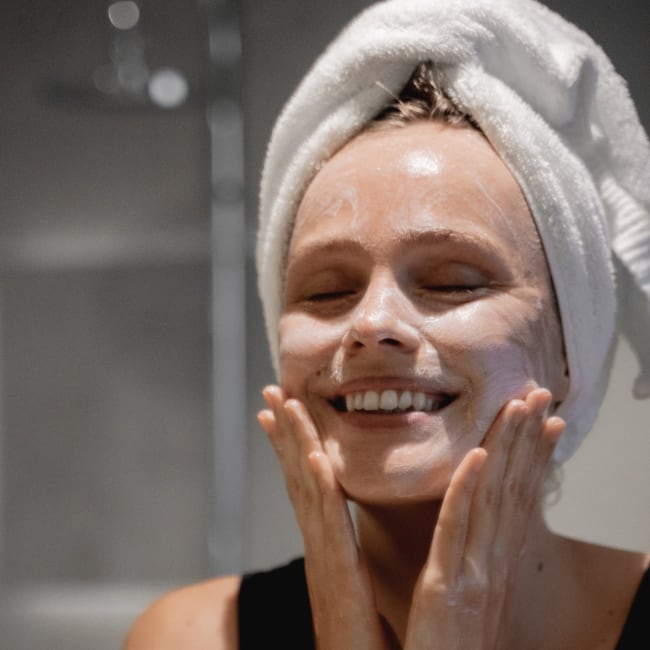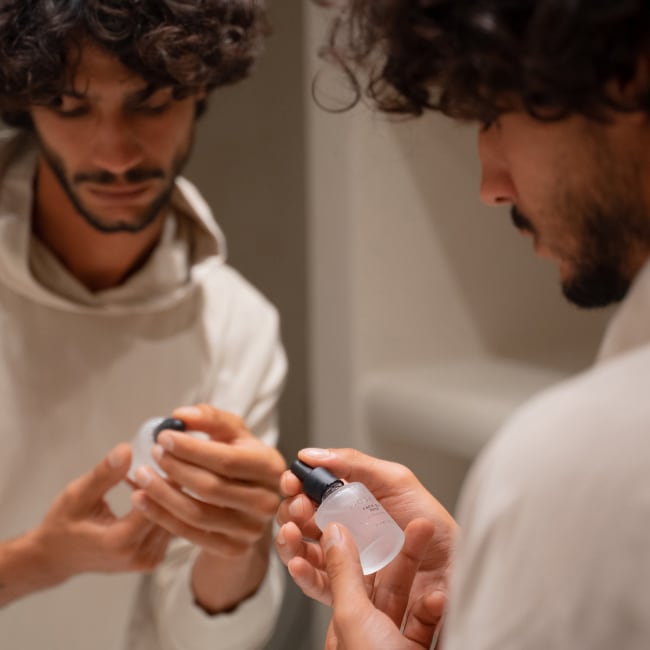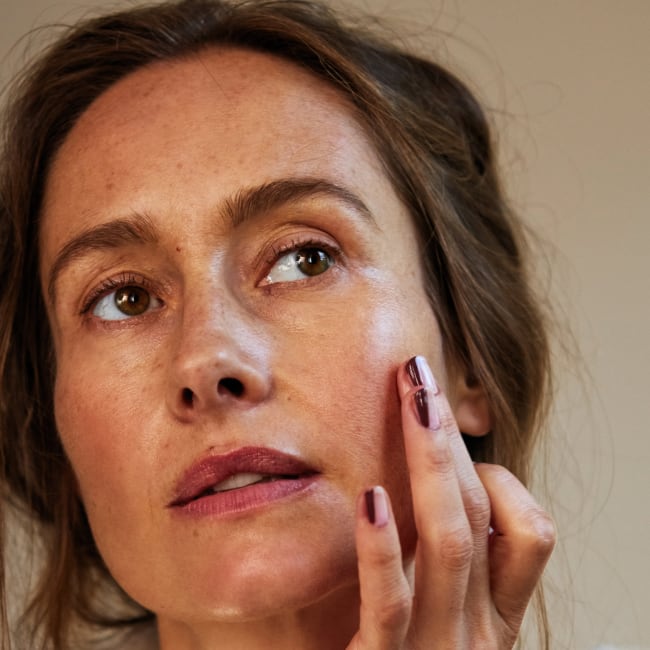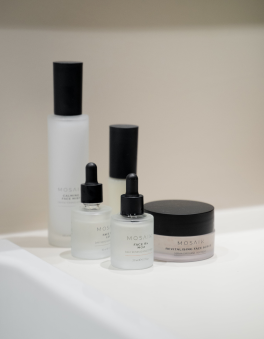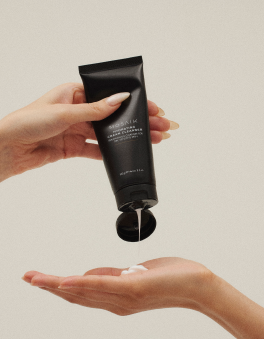Skincare for Acne-Prone Skin. Here’s How to Create the Right Routine for Your Skin’s Needs.
If you have acne-prone skin, skincare options, treatments, and other suggestions can feel endless and overwhelming - but caring for your skin doesn't have to be.
Acne is a common skin condition that is often defined as a ‘disorder of the hair follicles and oil glands (sebaceous glands)’. The sebaceous glands found in your skin secrete oils (sebum) to keep the skin moist. When these glands are clogged or blocked they become inflamed, and sometimes infected, which can lead to pimples and cysts. Thankfully, there are a variety of options to care for and treat even the most stubborn, severe acne.
So, what exactly causes acne? There are several factors and influences. Clogged pores, excessive oil production, bacteria that trigger an inflammatory response, hormonal changes, and even diet can all contribute to acne formation. Because of this, it is important to develop an acne routine customised to your skin's needs. And while there may be no one-size-fits-all regimen, building a good (and easy) skincare regime that can be modified to suit your skin’s needs is a great place to start. When it comes to caring for acne-prone skin, consistency and routine are key, as is ensuring you're using the right, quality products!
Cleanse
If your skin is prone to acne or breakouts, it is important that you cleanse your face twice a day.
Tone (Optional)
Using a toner is an additional step that helps remove extra oil and impurities, as well as rebalance the pH of the skin, which is normally slightly acidic, (the ingredients in some cleansers may nudge the skin pH towards basic). Because some toners can be drying, if you have less oily skin, you may not need to use one.
Treat/Medicate
The products used in this step may look different for everyone, but note that the morning is a good time to begin targeting new, or existing blemishes. Spot treatments are helpful for zeroing in on acne bumps with products that contain active ingredients like salicylic Acid, benzoyl peroxide, and sulfur.
Moisturise
Moisturising your skin is an important final step in your AM routine. But why? Lipids, or fats, in the top layers of the skin help retain moisture and function to create an impermeable barrier between your skin and the environment. Skipping this step could leave the skin dry, vulnerable to infection, and/or dull in appearance. Remember to look for non-comedogenic, which means the product is less likely to clog pores and contribute to the formation of acne papules.
Protect
Using a high SPF sunscreen is a very important step to maintaining healthy skin.
Makeup
Now you're ready to apply your favourite oil-free, mineral-based makeup, if you so desire.
Night-time Skincare Routine
The best results come with consistency and patience! Don't forget, by simplifying your skincare routine you'll make it easier to complete, and therefore, increase the likelihood of repeating it each day and night.
Cleanse
Washing your face in the evening removes oil produced during the day, as well as dirt, makeup, and other impurities you have been exposed to. If you are prone to or have more severe acne, you may want to try cleansers that contain active ingredients. Alternatives to acne washes are gentle cleansers and micellar water.
Tone (Optional)
As mentioned above, if your skin is oily, you can repeat applying toner in the evening, too, for an extra-squeaky-clean feeling.
Medicate
Because not everyone needs, or can tolerate acne medications applied to the whole face, how you medicate may look different from how another person with acne medicates. Product recommendations are typically individualised, but a gentler option is dipotassium glycyrrhizate, derived from licorice root extract.Dipotassium glycyrrhizate helps to kill bacteria, exfoliate dead skin, and brighten skin complexion
Moisturise/Apply Night Cream
As opposed to in the morning, your evening serum, moisturiser or night cream should not contain SPF.
Other Considerations
For the most part, patients with acne-prone skin should probably limit the number of products they use because too many products can cause skin irritation and aggravate acne or potentially block and irritate pores. And, keep in mind that no acne treatment works immediately or overnight. Adult acne may (also) be a symptom of other health conditions, and so, if you think your acne may be the result of an underlying condition, or is not responding appropriately to over-the-counter treatments, consult a Dermatologist.
